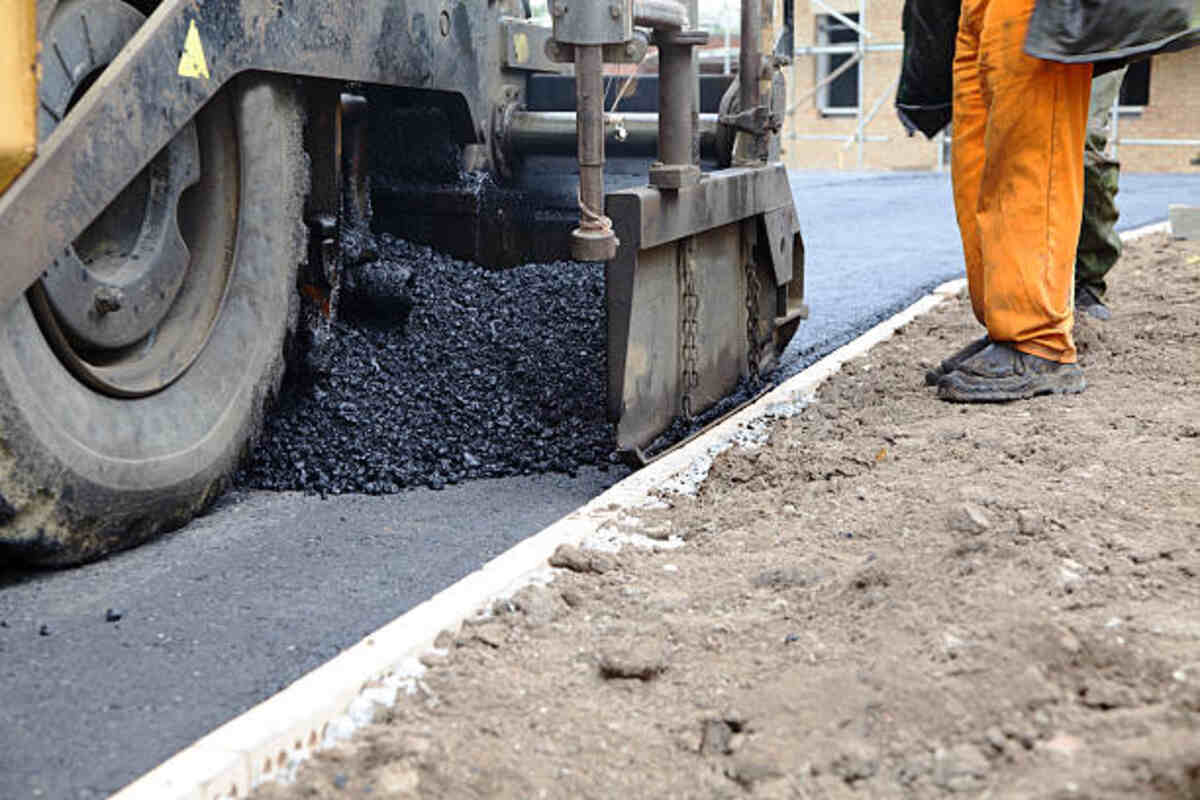What You Need to Know About Asphalt Paving Jobs
Asphalt paving jobs involve operating heavy equipment. Employees in this role are tasked with loading, covering, and transporting materials, as well as using special machines to prepare surfaces for laying asphalt. Choose the best Asphalt Paving Contractors Mesa.
Different mix designs provide different levels of durability and resistance to environmental and traffic stresses, so finding the appropriate mix for a job is of the utmost importance.
Preparation
As an asphalt worker, you must possess excellent time management skills. Paving jobs often have strict timelines that must be met efficiently, and you must communicate well with coworkers. Your responsibilities as an asphalt worker include operating heavy equipment like pavers and rollers, laying new surfaces with smooth finishes, excavating and demolishing existing structures, or prepping the dirt base for new projects.
Asphalt you drive on is composed of aggregate materials like crushed stone or sand mixed with asphalt cement that has been heated to over 300 degrees Fahrenheit. Once applied to a prepared base using special paving equipment, the mixture must then be compacted by rolling and packing for smoothness to eliminate any voids and ensure strength before curing correctly for several hours – it is imperative to the success of new pavement development!
To ensure the longevity of your asphalt paving job, it’s essential to select a contractor that uses high-grade materials. Low-quality paving materials quickly deteriorate and lead to expensive repairs; additionally, ask about what mix design your contractor intends on using as different mix designs offer different durability ratings depending on weather, traffic flow, and weight considerations – another reason it is vital to work with an experienced asphalt contractor.
Laying
Asphalt pavement is composed of carefully chosen mixtures of aggregate, binder, and filler that are designed for specific uses and climate conditions. Production takes place in an asphalt plant to ensure quality consistency and ensure consistent quality production.
Step one of laying asphalt involves preparing the site. This involves clearing away rocks, debris, and any existing asphalt using various large machinery such as bobcats, front loaders, forklifts, or dump trucks to create a clean canvas for new pavement that allows water drainage away from its surface.
Once the ground has been cleared, it must then be graded and sloped in order to create a surface that does not collect rainwater during heavy showers – one of the leading causes of asphalt damage. Grading also identifies soft areas in the sub-base layer that require replacement with more robust aggregates.
Step two is adding the binder layer. A binder is composed of large aggregate mixed with oil that helps hold the sub-base and new asphalt together. After spreading a binder, it must fully dry for optimal results; otherwise, the new asphalt could crack over time due to weather conditions and become rutted and cracked. Depending on the local climate, this process could take anywhere between one day to several.
Curing
Asphalt pavements are composed of aggregate materials like gravel and crushed stone mixed with bitumen, which is a petroleum-based substance. After being heated together to achieve paving-grade consistency, the mixture is spread onto roads, driveways, or parking lots using special paving equipment and left to cure for an agreed-upon period of time.
Asphalt must be kept at precise temperatures during its production to ensure it solidifies correctly and can be compacted without leaving voids in its compacted state. This step is especially essential when laying thicker courses of asphalt. Many factors can impact asphalt’s cooling rate, such as its ambient and ground temperatures, wind speed, and thickness of course being laid.
Temperature monitoring tools such as traditional temperature probes or infrared thermometers can be used to keep an eye on asphalt’s temperature, which should typically reach 275-300 degrees Fahrenheit before being transported to its construction site. When it arrives, contractors check and adjust its mix temperature as necessary before spreading it evenly over prepared surfaces using heavy rollers to eliminate voids and increase strength.
Paving contractors need to keep asphalt hot enough for workability yet cool slowly enough to prevent water infiltration. Therefore, weather forecasting is vitally important in their practice: contractors should seek conditions with an ambient temperature of at least 50 degrees Fahrenheit that steadily increases throughout the day.
Maintenance
Asphalt paving jobs must be carried out with extra caution to ensure proper functionality and longevity. Regular maintenance is critical to prolonging a pavement’s life span and avoiding major repair bills in the future; crack filling and seal coating provide crucial protective services against wear and tear.
Quality control technicians evaluate the work of other paving professionals and the final product to ensure it satisfies industry standards. This individual uses special equipment to test asphalt’s integrity.
Screed operators oversee the application of asphalt in residential and commercial driveways, parking lots, or roads. They understand how to set up their free-floating screed and adjust it as necessary for mat texture, grade, and slope optimization. In addition, this individual works closely with their paver to understand the job layout.
Truck drivers play an essential role in transporting equipment and supplies from one job site to the next. Their job requires them to be adept at operating large vehicles while adhering to all relevant safety protocols.
Pavement supervisors oversee all stages of the paving process to ensure each is completed on schedule and to high-quality standards. They must be highly organized workers capable of managing multiple crew members while assigning tasks, reviewing progress reports, and providing feedback back to management as necessary. In addition, these workers must have experience operating heavy equipment like pavers and rollers.
Read also: Why Choose Asphalt Paving Contractors With The Right Reputation?


